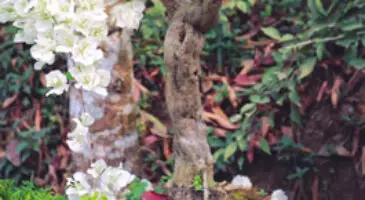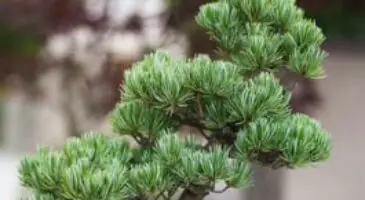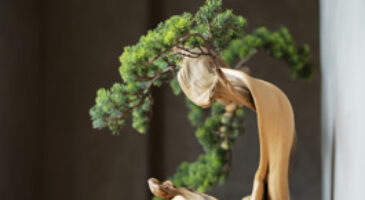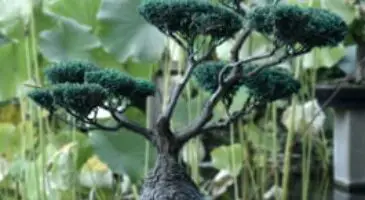Table of Contents
Bonsai plants are amazing and beautiful! Their miniature outlook gives a unique and attractive touch to the surroundings.
Many bonsai plant owners ask us a question that, are earthworms good for bonsai?
Do you have a bonsai plant at your home? If yes, then you must be willing to do everything for taking good care of it.
In this article, we will talk about whether if worms are good or bad for your bonsai plant. Plus, we’ll guide you with all the good steps you can take for taking good care of bonsai plants.
What exactly is a bonsai tree
Many people have no idea about what exactly is a bonsai tree. If you also don’t know anything about bonsai, then here’s the thing.
The origin of the bonsai tree and technique traces back to China and Japan. The term “bonsai” itself means grown in a container.
Bonsai is a miniature plant with a mature appearance. The plants are artificially dwarfed and contained in small containers. It makes them look beautiful like the trees in the wild.
Therefore, we can conclude the definition of bonsai in simple words:
Bonsai are mini-plants grown in small containers but their appearance is exactly like fully grown mature plants. They are a mini version of fully grown and mature plants.
Are earthworms good or bad for bonsai
When people see worms in the soil of their bonsai plant, they often get worried. Some people think they are good for bonsai while some think that they are bad for bonsai. This has created confusion among bonsai plant lovers.
What is the reality?
Well, a small number of earthworms can be good for bonsai because it is said that when earthworms live in the bonsai soil, they produce a lot of nitrogen. You probably know that nitrogen is a fertilizer that can be extremely beneficial for plants. It promotes the growth of plants and keeps them healthy.
However, if there are a large number of earthworms then it means that they will produce a huge amount of nitrogen. Excess of nitrogen can be extremely bad for the bonsai plants as well. It will turn the plant yellow and completely stunt its growth.
That’s how the presence of earthworms in the soil of your bonsai plant can affect it positively or negatively.
Why worms are good for bonsai plants
There are several different reasons why worms can be beneficial for your bonsai plants. Let’s explore them one by one.
1. Worms increase the availability of nutrients in the soil
All plants including bonsai need nutrients to grow and survive. Better nutrition means more healthy plants and good growth. Poor nutrition means less healthy plants and stunted growth.
Worms eat different things present in the soil such as leaves, manure, dead roots, and grasses, etc. Then they convert them into things that plants need like nitrogen fertilizer.
This way bonsai plants get better nutrition and show very good growth.
2. Worms improve the drainage of the soil
Worms are always burrowing and channeling in the soil. This improves the drainage of soil very effectively.
The water can infiltrate much deeper into the ocean. Moreover, the air can also reach more part of the soil.
Thus, the water goes deeper and the soil also dries up quickly.
3. Worms improve the productivity of the soil
Now we know that the worms increase the presence of nutrients in the soil and also improves its drainage.
As a result, the productivity of the soil also boosts up. It helps the bonsai plants to show better growth and health.
These were all the reasons why worms are considered good for the soil and bonsai.
How to take care of bonsai plants
Here is a quick guide that will teach you everything you can do for keeping your bonsai plants healthy.
1. Positioning and watering the bonsai plant
The rules for watering and positioning the bonsai plants are simple. Here is what you need to do:
Check the soil of the bonsai plant every day and only water it when it appears dry.
Do not water it on a routine basis. Just do it when the upper layer of the soil appears dry.
Position the bonsai in abundant sunlight for better nutrition and growth.
Avoid direct exposure to heat and draft to prevent any damage.
2. Pruning the bonsai plant
Regularly perform pruning of the bonsai plant to keep it in shape.
Pruning involves snipping the buds, leaves, and branches of the bonsai plant to shape it as per your desire.
You can also wire the branches of the plant to give them your favorite shape.
3. Fertilization and soil of the bonsai plant
Proper drainage of the bonsai plant is very important. You can mix a few volcanic rocks in the bonsai soil. It will excellently improve the aeration and drainage of the bonsai plants.
For improving the water retention of the soil, you can also mix some clay into it.
If you are concerned about the fertilization of the soil, then the best approach is to add fertilizer to the soil after watering it. Doing this will yield better results for the plant.
4. Repotting the bonsai plant
If you want to take good care of your bonsai plant then you should re-pot it for at least one time in 2-5 years.
While repotting the bonsai, you should trim the outer layers of its root mass.
Moreover, you should also thoroughly clean the pot before repotting the bonsai plant in it.
Doing this is very important for the better health and growth of your bonsai plant.
Final thought
Worms eat dead roots, grasses, and debris of leaves present in the soil and then convert them into nutrients required by the plants such as nitrogen fertilizer. This way they make the soil beneficial for bonsai by increasing the availability of nutrients.
However, too many worms can create an excess of nutrients which can be bad for the bonsai plants. An overabundance of nutrients and fertilizers stunt the growth of bonsai plants and burn or damage it.
If you want to know how you can take good care of your bonsai plants, then you can read our quick guide above that will teach you so many useful care guidelines about bonsai plants in a short time.



